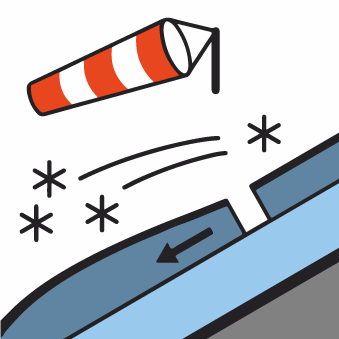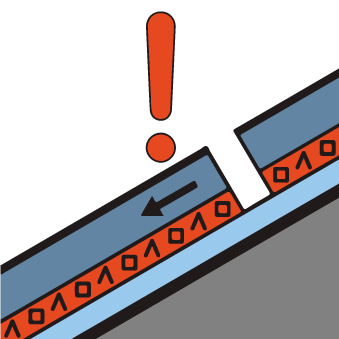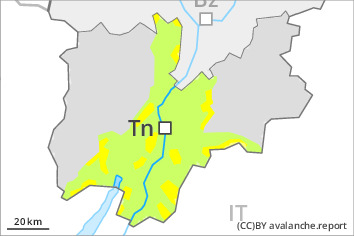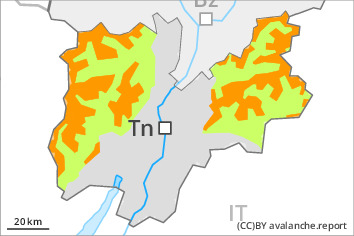
Danger level
 | treeline |
| 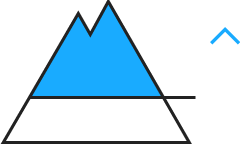 |
|  | ||||
|  |
|  |

As a consequence of new snow and wind a treacherous avalanche situation will still be encountered.
As a consequence of new snow and a strong northerly wind, avalanche prone wind slabs formed in the last few days in particular adjacent to ridgelines and in gullies and bowls. The avalanche prone locations are to be found in particular in steep terrain above the tree line. In all aspects avalanches can be released easily and reach quite a large size. The prevalence of the avalanche prone locations will increase with altitude. They are difficult to recognise.
More recent wind slabs are to be avoided in all aspects. Caution is to be exercised at transitions from a shallow to a deep snowpack.
Snowpack
dp.6: cold, loose snow and wind
dp.1: deep persistent weak layer
The snowpack will be prone to triggering above the tree line. The more recent wind slabs are lying on the unfavourable surface of an old snowpack in all aspects at intermediate and high altitudes. Faceted weak layers exist in the bottom section of the snowpack in particular at elevated altitudes. Weak layers in the old snowpack can be released in isolated cases and mostly by large additional loads especially on steep, rather lightly snow-covered shady slopes.
Tendency
The avalanche danger will decrease gradually.
